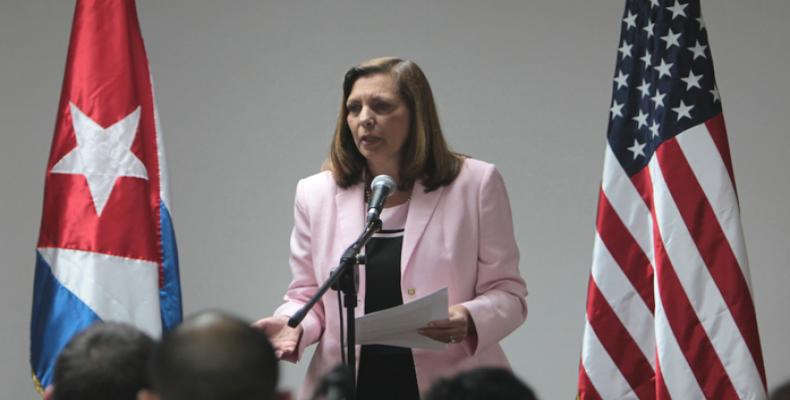Washington, December 11 (RHC-PL) The Cuban government expressed its concern Monday about the negative consequences of the measures adopted by Washington last September and October on bilateral migratory relations.
During a new round of migratory talks held in Washington, Cuba once again warned of the negative impact of the suspension of the issuing of visas at the US Consulate in Havana.
“Such action, which brings to a halt the procedures of Cuban citizens to visit or migrate to the United States, seriously jeopardizes family relations and exchanges of all kinds between the Cuban and American peoples”, according to a note released by the Cuban embassy in Washington, quoted by Prensa Latina news agency.
The Cuban delegation, headed by the general director of the United States Desk in the Cuban Foreign Ministry, Josefina Vidal, also reiterated rejection of the arbitrary expulsion of a large group of officials who worked in the Cuban embassy in the U.S. capital.
According to the note, this step has significantly affected the functioning of the mission, and particularly those of the consulate and the services it provides to Cubans living in the United States, as well as attention to Americans who are interested in traveling. To Cuba.
The note added that these measures were unilateral, unfounded and politically motivated.
During the dialogue with the US delegation, which was led by the Deputy Assistant Secretary for the Western Hemisphere at the State Department, John Creamer, Cuba also drew attention to the counterproductive effect of the decision to cancel trips of official US delegations to the Caribbean island.
With respect to the current status of the bilateral migratory agreements, the Cuban representatives urged Washington to fulfill its obligation to issue no less than 20 thousand annual travel documents to Cuban citizens to emigrate to the United States.
The Cuban Adjustment Act was also raised during the talks. Cuba stressed that it continues to be an encouragement for irregular migration and that its repeal will be essential to achieve normal migratory relations between the two countries.
The two delegations agreed to recognize the positive impact of the Joint Declaration signed on January 12 and, specifically, the elimination of the dry feet-wet feet policy and the Parole Program for Cuban Medical Professionals for the reduction of irregular migration.
They also agreed on the usefulness of the exchange between Coast Guard Troops and the Coast Guard Service held in July and the technical meeting on human trafficking and immigration fraud carried out in September, which will continue on Tuesday.


